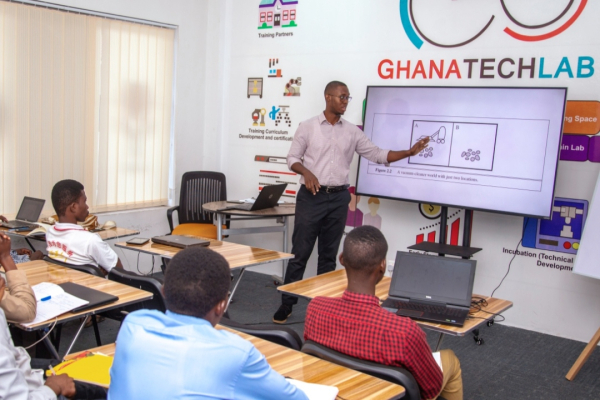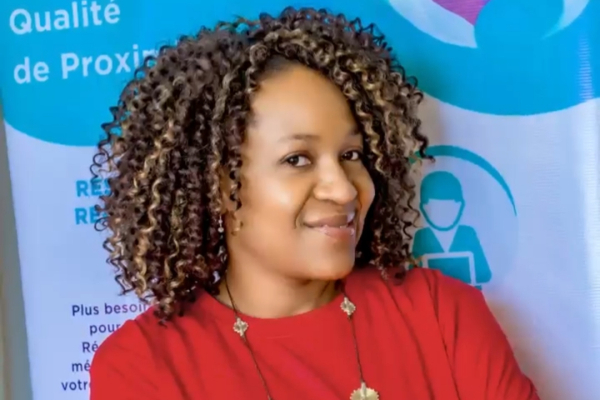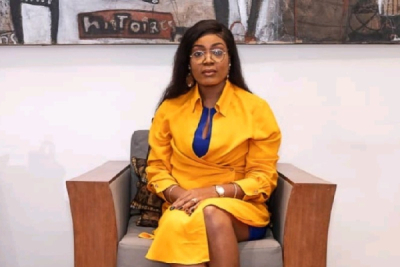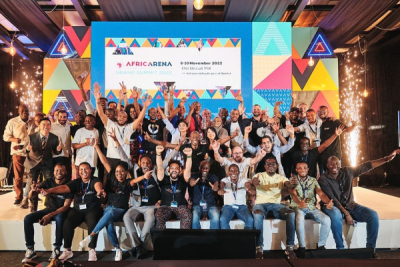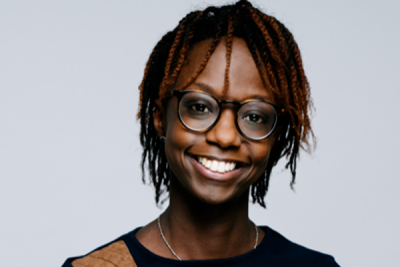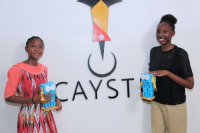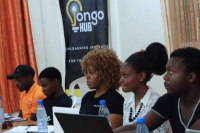
TECH STARS (1007)
Ghana Tech Lab firmly believes in Africa's development through emerging technological innovations. Through its unique programs and courses, the Lab supports budding entrepreneurs, from the idea stage to the creation of a profitable business.
Ghana Tech Lab is a technology innovation center aiming to become a major platform for digital innovations in Africa and beyond. Established in 2018, it has set up an open collaboration space for digital skills training, initiating innovations, and growing startups.
The innovation center offers free digital skills training, startup incubation services, seed funding for innovative ideas, and startup growth. Its team of experts also create solutions to meet the needs of various industries.
Ghana Tech Lab provides entrepreneurs and innovators with technology innovation spaces such as the Makerspace, the creative space, the AI Lab, the Blockchain Lab, the Robotics Lab, the Cybersecurity Lab, the IoT Lab, and the VR/AR lab.
Ghana Tech Lab's core program, which is also its flagship, prepares individuals to think and create new digital solutions. It lasts three months and is divided into two sub-programs. The first is a one-month digital skills training, and the second is a two-month intensive incubation program intended for the top trainees spotted during the training.
The center offers grants to new companies created during and after their incubation. This is to help them turn their ideas into world-class startups. Through its partners, Ghana Tech Lab offers its trainees internship programs, to help them hone their newly-acquired skills.
Since launching, Ghana Tech Lab has trained 3,972 people, created 401 jobs, and incubated 31 startups. The center’s partners include the World Bank, Ghana's Ministry of Communications, the Mastercard Foundation, Kumasi Hive, Innohub, and the Accra Digital Centre.
Melchior Koba
From Banking to Digital Health: Joelle Itoua Owona's Journey in Fostering Global Medical Connections
A Cameroonian native, Joelle Itoua Owona worked in France and the US for many years. She, however, returned to Africa, to the Republic of Congo precisely where she founded an e-health startup.
Joelle Itoua Owona is a banker who moved into e-health. This Cameroonian native founded and is the CEO of AfriWell Health, a medical technology startup, active in the Republic of Congo.
Founded in 2022, the startup provides a digital platform that connects, rapidly and efficiently, patients in Congo with health professionals worldwide. In its first five years of activity, the company aims to create 500,000 patient-doctor connections.
AfriWell Health offers multiple diverse features. It provides services such as online appointment booking and video consultation. It also allows for doctor reviews and online access to medical history. All of these services are aimed at helping Congolese people better manage their health.
The startup is in partnership with several international hospitals, including Euracare in Ghana and Nigeria, the Zaghouan clinic in Tunisia, Memorial and Dent-Health in Turkey, and Narayana Health in India. It is one of the startups selected to take part in the 2023 cohort of the Google For Startups: Women Founders program.
Owona is a graduate of ESCP Business School and the MIT Sloan School of Management. In the former, she earned a master's degree in 2008, and in the latter, she obtained an MBA in Finance in 2016. Prior to venturing into the e-health sector, she worked for several financial institutions in Europe and the US.
In 2008, she worked for Crédit Agricole CIB in France as a junior analyst. In 2009, she joined the HSBC banking group as an international manager in New York, USA. She also worked for Bank of America Merril Lynch from 2016 to 2023 as an investment banker covering healthcare.
Melchior Koba
Fintech is one of the sectors that has grown the most in Africa in recent years. And one of the entrepreneurs who contributed to this growth is Danielle Ekambi Soppo, who strives to advance financial inclusion.
Cameroonian entrepreneur and investor, Danielle Ekambi Soppo, co-founded and heads SuiTch. This is a startup that helps people who have low access to conventional banking solutions, by leveraging digital financial services.
Ekambi Soppo graduated from the Paris Dauphine-PSL University. Between 2007 and 2008, she completed her studies in economic studies and corporate strategies. And in 2011 and 2012, she studied financial engineering, corporate finance, private equity, treasury management, and mergers and acquisitions.
In 2010, she worked as a wealth management consultant at Elite Investment Group, in China. That same year, she went back to Cameroon and worked at the National Shippers' Council of Cameroon (CNCC), as a project financing analyst. She worked there for about a year.
Between 2012 and 2013, she worked at ESSCA Angers business school in banking and risk management. She has also worked as an investment analyst at several investment companies such as Argos Soditic and Platina Partners LLP.
Two years later, in 2015, Danielle Ekambi Soppo founded SuiTch. The startup’s mission is to give people the means to fully tap into the digital economy, enabling them to grow and grow their businesses. The businesswoman offers non-bancarized Cameroonians a mobile payment solution that allows for simple, fast, and secure financial transactions.
SuiTch’s partner companies can grant salary advances to their employees. The startup also gives microcredits, going up to 500,000 FCFA (about $840) to micro and small businesses that use the application.
Danielle Ekambi Soppo currently is the president of the circle of young leaders of Cameroon’s Inter-employer Group (GICAM), which represents the country’s private sector actors. She has also been, since 2014, the managing director of Malaïka Investment Partners, an investment club that supports micro-enterprises with equity and quasi-equity in Cameroon.
SuiTch is presently among Cameroon’s top 7 promising startups. It is also one of the 15 companies picked to join the 2023 cohort of Google for Startups Accelerator: Women Founders.
Melchior Koba
As the continent experiences a technological revolution, new startups keep emerging in Africa, in every sector. AfricArena, in this context, plays a vital role as a catalyst for technological innovation and entrepreneurship on the continent.
Based in Cape Town, South Africa, AfricArena is a startup accelerator founded in 2017 by entrepreneur and investor Christophe Viarnaud, who also serves as its CEO. The startup promotes collaboration between the key players in Africa's technological ecosystem and helps startups expand by making them more visible and providing them with funding opportunities.
The accelerator aims to connect African startups with investors, businesses, and potential partners worldwide. Each year, it organizes regional and international summits that bring together all stakeholders in Africa's tech sector, providing a platform for continental startups to showcase their ideas, build valuable connections, and access funding opportunities. The accelerator is set to hold its next regional summit in Nairobi, Kenya, on September 6. AfricArena organizes regional events throughout the year, thus creating opportunities for startups from different African regions to connect with local and international investors.
Since its inception, the accelerator has launched several open innovation challenges for Africa's top tech startups. Whether for businesses specializing in deep tech, logistics, mobility, health tech, artificial intelligence, agritech, edtech, or fintech, these challenges allow founders to demonstrate their entrepreneurial talent and innovative technology to investors, businesses, and the pan-African tech ecosystem.
AfricArena is a staunch advocate of diversity and inclusion in the tech sector. It strives to promote equal opportunities by supporting female entrepreneurs and encouraging the participation of young African talents through initiatives such as the Fem-Tech Startup Innovation Challenge, organized in partnership with Amazon Web Services.
The accelerator collaborates with various national and international institutions, including Bpifrance, Hello Tomorrow, Vinci Energies, Sanofi, energy company Engie, La French Tech, Viva Technology, Air France KLM Group, and Wesgro, and many more.
Melchior Koba
She is an internationally renowned entrepreneur and business leader. She co-founded and heads Kwara, a startup that helps financial cooperatives better manage their operations using technology.
Cynthia Wandia, a Kenyan electrical engineer and entrepreneur, founded the start-up Kwara with David Hwan in 2018. Kwara, which she steers as CEO, offers financial cooperatives and their members a secure, enjoyable, and affordable online and mobile banking experience.
Based in Kenya, Kwara's mission is to enable the 3 billion under-served people worldwide to become financially stable and balanced. To achieve this, the start-up is modernizing and equipping savings and credit cooperatives with a banking services platform that updates and improves their back-office operations.
In January 2023, the startup, which already serves over 100,000 members, raised $3 million in seed capital and signed an exclusive digital solutions distribution agreement with the Kenyan Union of Savings and Credit Cooperatives (Kuscco), representing over 4,000 savings and credit cooperatives (Saccos) in Kenya.
"We believe that we have barely scratched the surface of the Kenyan market. That's why we're going to invest in products and services that will allow us to deepen our relationships here," said Cynthia Wandia.
"The logic of the agreement is clear: it's an opportunity to generate leads and distribute our core product as quickly as possible, and to deepen our competitive edge," she added.
Cynthia Wandia holds a bachelor's degree in electrical engineering, obtained in 2009 from Yale University. In 2014, she co-founded ASTRA Innovations, an energy company where she served as CEO until 2017.
Before founding Kwara, she worked for several companies. In 2010, she served for six months as a business development consultant for the Mexican business accelerators network Aceleradora de Empresas ITESM. Between 2012 and 2014, she worked at E.ON Climate & Renewables, successively as a fleet performance analyst and director of special projects. In 2017, she joined Finparx, a business creation studio, as a project developer.
In 2018, the Kenyan newspaper Business Daily Africa named Wandia one of the country's 40 most influential women under 40.
South Africa has one of the most advanced technology ecosystems in Africa. The country has numerous tech entities, including startups, incubators, and accelerators. Among them is Start with Seven (Sw7).
Start with Seven (Sw7) is Africa's first virtual acceleration platform for B2B. It brings together B2B tech founders, CEOs, COOs, CFOs, mentors, and investors.
Founded in 2014 by Odette and Keith Jones (CEO), Sw7 provides strategic guidance to pre-seed to Series B startups and funded companies. This South African platform also offers a comprehensive set of guidelines, resources, information, and expertise developed by and with founders, CEOs, mentors, and venture capital firms to boards of companies.
The support is delivered to business managers and entrepreneurs through tailored digital workshops, community calls, and 24/7 access to online resources and content. The platform's guidance extends throughout the fundraising journey. It provides insights on establishing and scaling offshore operations, as well as expanding into the United Kingdom, the United States, or other African markets.
"We combine private one-on-one workshops, advisory, and mentoring sessions on priority areas with peer learning and knowledge-sharing that take place in our private roundtables, group webinars, and on our platform," the platform indicates.
Sw7 collaborates with various technology partners, including Amazon Web Services, HubSpot, Intercom, Miro, and Twilio. These partners offer several advantages, ranging from training and technical support to scaling assistance and enhanced market access.
Melchior Koba
He founded a company that digitizes the transportation sector and connects freight shippers and carriers. Backed by several investors, the company collaborates with major transport companies.
Moustapha Ndoye (see picture) is a Senegalese computer scientist and graduate of the Georgia Institute of Technology. With Alioune Ndoye, he co-founded Chargel, a logistics technology startup created in 2021. The company's mission is to make road transport more efficient, reliable, and transparent.
The startup helps carriers find freight at any time via its platform. This helps the users avoid empty trips while enjoying prompt payments. In addition, it offers value-added services such as the supply of GPS trackers, assistance in purchasing fuel at discounted rates, and support for repairs in case of breakdown.
With his startup, Moustapha Ndoye, its CEO, hopes to build the largest network of road freight transport in French-speaking West Africa. This will facilitate shippers' access to thousands of trucks at the best prices.
In April 2023, the company successfully raised $2.5 million to expand its operations in Senegal and neighboring countries such as Mali, Guinea, and Mauritania. Chargel has recently been selected for the Google for Startups Black Founders Fund and was ranked among the top 20 African startups to watch in 2023 by Jeune Afrique magazine.
Since its launch, Chargel has entered partnerships with several global giants, including Maersk and Grimaldi. In 2022, the company recorded a gross merchandise volume of $1.2 million.
Before starting Chargel, Moustapha Ndoye was the CEO of Xtreme Design and Engineering - an iOS mobile application development company, from 2009 to 2018. In 2013, he co-founded Teranga Solutions, a company that provides an outstanding hotel experience by leveraging mobile and cloud technologies.
After serving as CEO of Teranga Solutions, he became the Chief Operating Officer of HotelOnline in 2018. In 2020, he joined Wave Mobile Money as Director of Products until the launch of Chargel the following year.
Melchior Koba
He is a tech entrepreneur with two successful companies in Liberia. Thanks to his solution My Watchman, he was celebrated at the Global Startup Awards as West Africa's Founder of the Year 2023.
Oliver Wleh Klark (photo) is a Liberian entrepreneur who graduated from Hamline University School of Business in 2012 with a Master's in International Conflict Management. Recently, at the Global Startup Awards, he received the 2023 West Africa Founder of the Year award for his tech solution My Watchman.
“This award is a win for Liberia because it gives the country the platform to showcase innovations and different technologies, developed locally, which can be scaled across the continent. So, we are proud to have won this, but more importantly for us, we think this is a big win for all Liberians,” he said after receiving the award.
The solution that earned him the award is a full-service emergency app, with an around-the-clock emergency response network and an emergency dispatch command center. It's a smarter, safer way to protect family and property, with access to help anywhere, anytime. As the winner of this award in the West African zone, My Watchman and Oliver Wleh Klark will represent the whole zone at the grand final where the continental founder of the year will be named.
The solution is a registered trademark of technology company Advanced Converged Technologies LLC, founded and currently headed by Oliver Wleh Klark. The entrepreneur is also the CEO and one of the co-founders of RoviaGate Technology, a Liberia-based information and communication technology (ICT) company offering integrated smart data-centric solutions.
Melchior Koba
CAYSTI teaches coding, robotics, and the fundamentals of artificial intelligence to children. It guides them in the creation and launch of professional digital projects, ensuring their long-term viability.
The Cameroon Youth School Tech Incubator (CAYSTI) is a center for technological innovation and the promotion of Cameroonian technological entrepreneurship. Founded in 2018 by computer scientist Arielle Kitio, who is also its CEO, it aims to develop the technological skills of children aged 6 to 15. Doing will help them become tech innovators and entrepreneurs.
The center designs turnkey educational programs in national languages for schools and governments. The programs teach creative development, tech or scientific innovation, and renewable energies as well as introduce children to coding, robotics, 3D, artificial intelligence, and renewable energies.
It provides auditing and support services for national education systems to better prepare the next generation for the digital revolution by combining cultural identity, problem-solving, project-based approaches, and gamification.
CAYSTI also designs and popularizes smart, collaborative, and intuitive digital tools to facilitate egalitarian access to quality and creative STEM content.
To this end, it has developed projects such as abcCode, a playful and intuitive coding environment that develops creativity and easily introduces children to creative programming. It also developed CAYSTI Edu Kit, a stand-alone 4-in-1 kit that enables learners to intuitively master project design and computer coding without the need for an Internet connection.
Also, with its partners Orange, IBM, Developers Institute, and the Ministry of Posts and Telecommunications, among others, it has launched tailor-made courses and developed international hackathons to expand and consolidate a worldwide community of creative minds.
It also organizes bootcamps, such as the CAYSTI Champion Camp, which rewarded three young champions from 3rd to 4th grade in 2020. The center has already trained and empowered over 28,000 children, 60% being girls. It has also trained over 500 teachers and signed partnerships with more than 24 schools.
Melchior Koba
Through its programs and services, Jongo Hub fosters the development of good and investible businesses and encourages the creation of a dynamic and innovative entrepreneurial ecosystem.
Jongo Hub is an innovation-based business support organization located in Silicon Mountain Buea, in the southwestern region of Cameroon. Founded in 2016 by Mokate Ashu, Ayeah Kermit Timngum, Enow Daniel Ashu, and Quinshie Miranda, its mission is to foster the development of high-impact innovative technology solutions.
It offers entrepreneurial support services, working with businesses to build a robust online presence and generate more conversions and revenue. Like most innovation centers and start-up incubators, it also offers coworking spaces to enable entrepreneurs to work in a friendly environment and collaborate with other wealth creators.
With Oneke John Etta Tabe as its executive Director, Jongo Hub -through its 6-month Jongo Hub Innovation Academy program- helps entrepreneurs and innovators strengthen and amplify the digital and business skills needed to survive in an increasingly competitive business environment.
The organization is a member of the AfriLabs network. Supported by Rinoo and Dufuna, it incubates businesses in various sectors including health and wellness, education and learning, and environment and green energy.
During the business incubation period, in addition to workspace, it offers entrepreneurs services like market research, user studies, ethnography and behavior change, prototype development, technical review, and product development, among others. Entrepreneurs also have access to a technology and manufacturing lab.
Jongo Hub's technology lab and multimedia studio is called Jongo Studios. It hosts a team dedicated to helping companies and SMEs establish their brands, effectively reach customers and create the desired impact.
Melchior Koba
More...
After his studies, he honed his skills in the real estate sector by working for companies in France and Morocco. He then ventured into entrepreneurship by founding, with his brother, Agenz, a company dedicated to helping individuals make better real estate decisions.
Malik Belkeziz (photo) is the CEO and one of the co-founders of Moroccan estate appraiser Agenz. The Moroccan-born entrepreneur holds a master’s in engineering from French engineering school EST Paris.
In 2021, he founded Agenz, with his brother Badr Belkeziz, to provide reliable and instantaneous information on the real estate market. Doing so, he aims to help buyers make informed real estate decisions in a fast and timely manner.
The company deploys highly sophisticated and accurate real estate appraisal and analysis tools. It continually collects, analyzes, and structures real estate market data like offers, transactions, cadastral and socio-demographic data. Its appraisal solutions are powered by machine learning algorithms developed by its data scientists.
In February 2023, Malik Belkeziz and his team unveiled two new tools. One, available directly on its website, provides up to five years of historical real estate prices. The second tool is Agenz Pro, a mobile app that enables agents to manage their contacts with an integrated CRM (Customer Relationship Management), stay up to date, and respond to requests.
"The two new tools are perfectly in line with Agenz's mission, which is to streamline the real estate transaction process for users: on the one hand, by bringing transparency to the market for every project owner, whether seller, buyer or tenant, and on the other hand, by helping professionals showcase their expertise and prospect more effectively," says Agenz's CEO.
The latter’s professional career began in 2012 with a 4-month internship with Bouygues Construction. In 2014, he was hired as a real estate program manager for Nexity, a French real estate development company. About five years later, he joined real estate investment company Yamed Group as an asset manager.
Melchior Koba
InnovaLab GW, which was founded by young professionals, is the first innovation accelerator in Guinea-Bissau. Through its programs, training, and services, it promotes the development of the country's entrepreneurial ecosystem.
InnovaLab GW is a start-up accelerator founded by young Guinea-Bissau professionals Adulai Bary -a computer engineer with years of experience currently serving as its CEO- and Claudinecia Cabral -a senior project manager and accountant serving as the accelerator’s Resources and Programs Manager.
Since its inception in 2016, it has worked to foster the development of the entrepreneurial ecosystem by supporting entrepreneurs and startups in the fields of education, agriculture, healthcare, and infrastructure. Its aim is "to [contribute] to the achievement of sustainable development in Africa, starting with Guinea-Bissau," it says on LinkedIn.
Through its co-working space, the accelerator offers a collaborative working environment where people meet, work, network, share ideas and collaborate on projects. Accessible at any time of the day, these fully-equipped spaces can accommodate up to 15 people and offer free Internet access.
They are designed for small and medium-sized businesses, freelancers, home workers, start-ups, digital designers, and other digital professionals whose work doesn't fit into a traditional office model.
InnovaLab GW also provides entrepreneurs with the coaching, tools, resources, and network to help them meet the myriad challenges that lie ahead. It offers mentoring and management training services to startups and new businesses.
It also connects entrepreneurs and business leaders with legal experts and other specialists and organizes exchange events between entrepreneurs from various sectors.
With the help of its partners, including AfriLabs, Seedstars, Yali Network, Next Einstein Forum, and Global Entrepreneurship Network, InnovaLab GW has created over 200 direct jobs, organized more than 300 events, and helped create more than 20 startups.
Melchior Koba
He is passionate about using technology to solve key challenges. After his studies and a few years after working in the United States, he returned to his native country, Senegal, where he launched a healthtech company to solve challenges.
Mouhamed Ndoye (photo) is a Senegalese computer scientist who graduated from the Texas McCombs School of Business with a master's in information technology and management. He is the CEO and one of the co-founders of medtech startup Tanél Health.
The startup, founded in 2020, builds modern platforms for African healthcare companies, notably pharmacies, and insurers. Its goal is to build an integrated tool that connects all healthcare stakeholders.
The company has developed easy-to-use, affordable, and reliable software to streamline pharmacy management. The software enables pharmacy owners to optimally manage inventory, monitor sales, manage cash flow, track inventory, and manage their teams. It features a modern interface compatible with all types of devices. From its dashboard, users have access to detailed reports revealing actionable data for better decision-making.
In 2019, the CEO of the startup behind it co-founded Anythng, a company that reinvents the way modern restaurants communicate with their customers. He served as the CEO of that company till 2020. Still, in 2019, he co-founded Tékkil, a non-profit organization dedicated to connecting and promoting Senegalese-American professionals to become leaders in their careers and communities. He also served as the CEO of that organization till 2022.
In 2021, he took part in the startup acceleration program On Deck. The serial entrepreneur entered the professional world, in June 2010, as a software engineer for Tech Corps, a U.S. tech company. From 2014 to 2018, he was a consultant for Cardinal Solutions, a U.S. IT solutions provider.
Melchior Koba
Kuassi Jimmy Kumako (photo) is a computer engineer with a degree from Dakar's Cheikh Anta Diop University (UCAD). He is one of the co-founders of fintech start-up Moneco, which guides members of the African diaspora as they settle in France. It enables them to open an account, have access to an international payment card and make transfers anywhere in Europe.
His startup, founded in 2022, is a one-stop shop for all the financial needs of the African diaspora in Europe. It is the only startup in the S22 batch to be accepted by Y Combinator the same year it began operations. It was developed to help the diaspora save money by aggregating all their financial needs on one platform.
The Moneco platform enables immigrants settled in Europe to open a current account with local IBAN. It also gives them the possibility to top up their accounts via various methods, set up group saving schemes, send funds to Africa free of charge, and make international payments among other things.
Besides Moneco, Kuassi Jimmy Kumako also co-founded (in 2016), a classified ads platform for SMEs based in Francophone Africa. He is a member of the Benin Business Angel Network, an association of local and diaspora entrepreneurs, investors, and professionals willing to invest, open their networks, and guide entrepreneurs in the Beninese ecosystem.
In 2010, he co-founded SITBusiness, which coordinated the design and use of a geographic information system for non-governmental organizations in Senegal. In 2014, he also co-founded Dev Engine Labs, an agency that supports start-ups and banks in the design, creation, and optimization of digital services to meet their customers' needs.
A former consultant in finance, competitiveness, and innovation at the International Finance Corporation (IFC) and ex-business associate at Google, he worked from 2020 to 2022 for Paystack, a fintech specializing in online and offline payments in Africa, as a developer.
Melchior Koba


